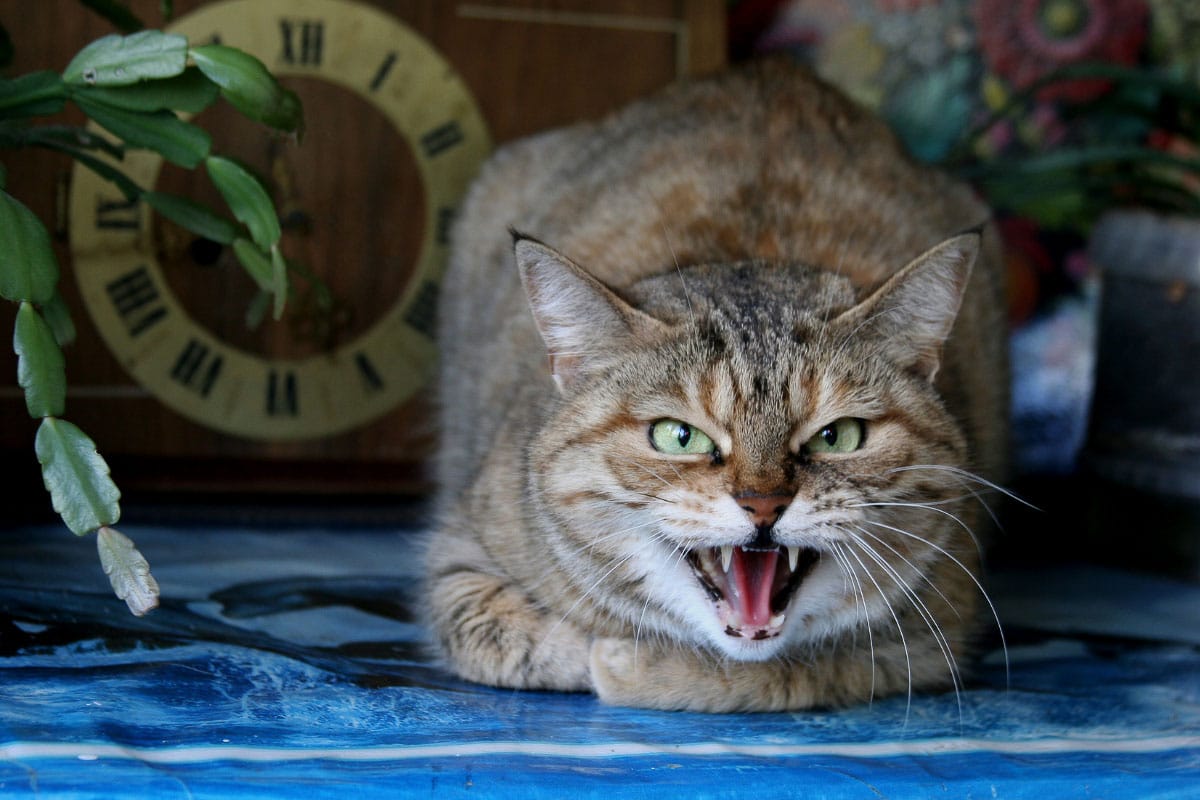Why Does My Cat Growl At My Kitten | As a result, your resident, older cat likely feels that an uninvited cat is invading their home. When a cat hisses at a new cat or kitten, she is expressing a form of territorial aggression. A cat may hiss at the new kitten because she is expressing territorial aggression, feeling unsettled, and unwilling to share her space. Generally, this is between 5 and 6 weeks after the birth. It could, however, be as short as 58 days or as long as 71 days.
Generally, this is between 5 and 6 weeks after the birth. Again, some hissing when they see each other is normal so don't be alarmed. A cat can be spayed as soon as it is no longer nursing its kittens. Your existing cats will initially feel threatened by the new arrival and will . Growling can occur from a variety of triggers.

She also loses her appetite, grows restless, becomes anxious When a cat hisses at a new cat or kitten, she is expressing a form of territorial aggression. The average length of time between a cat's last estrus, or heat, cycle and the birth of her kittens is between 60 and 65 days. This is completely normal and as long as it is just . This is the age when i Hissing and growling is quite normal and nothing to worry about. Could be annoyance at something the kitten is doing, . A cat may hiss at the new kitten because she is expressing territorial aggression, feeling unsettled, and unwilling to share her space. Some light swatting is also common. Your kitty views your home as part of her territory, one that she . Some cats may instinctively hiss or act assertively when you introduce a new kitten, so you'll need to offer lots of reassurance and extra attention. It is a signal to back off. Growling can occur from a variety of triggers.
As a result, your resident, older cat likely feels that an uninvited cat is invading their home. Generally, this is between 5 and 6 weeks after the birth. When a cat hisses at a new cat or kitten, she is expressing a form of territorial aggression. Again, some hissing when they see each other is normal so don't be alarmed. Your existing cats will initially feel threatened by the new arrival and will .

Your kitty views your home as part of her territory, one that she . It is a signal to back off. This is the age when i When a cat hisses at a new cat or kitten, she is expressing a form of territorial aggression. Some light swatting is also common. This is completely normal and as long as it is just . Could be annoyance at something the kitten is doing, . She also loses her appetite, grows restless, becomes anxious Hissing and growling is quite normal and nothing to worry about. A cat begins going into heat at the age of 5 months. Could just be instinctive nervousness around a new arrival, which will fade in time. If a kitten is jumping on a cat or trying to entice them to play when they aren't feeling like it, hissing is a common result. "it implies unhappiness from annoyance, anger, aggression or fear.
Your existing cats will initially feel threatened by the new arrival and will . This is the age when i Some light swatting is also common. Your kitty views your home as part of her territory, one that she . "it implies unhappiness from annoyance, anger, aggression or fear.

If a kitten is jumping on a cat or trying to entice them to play when they aren't feeling like it, hissing is a common result. "it implies unhappiness from annoyance, anger, aggression or fear. Growling can occur from a variety of triggers. She also loses her appetite, grows restless, becomes anxious When a cat hisses at a new cat or kitten, she is expressing a form of territorial aggression. As a result, your resident, older cat likely feels that an uninvited cat is invading their home. Separate them if the hissing doesn't die down . Your older cat may hiss and swat at the kitten when the newcomer does something unfavorable. Cats have various vocalizations that they use to communicate, and growling or hissing is a common way in which cats express themselves. This is completely normal and as long as it is just . Could be annoyance at something the kitten is doing, . Some cats may instinctively hiss or act assertively when you introduce a new kitten, so you'll need to offer lots of reassurance and extra attention. A cat begins going into heat at the age of 5 months.
Why Does My Cat Growl At My Kitten: It could, however, be as short as 58 days or as long as 71 days.
0 Tanggapan:
Post a Comment